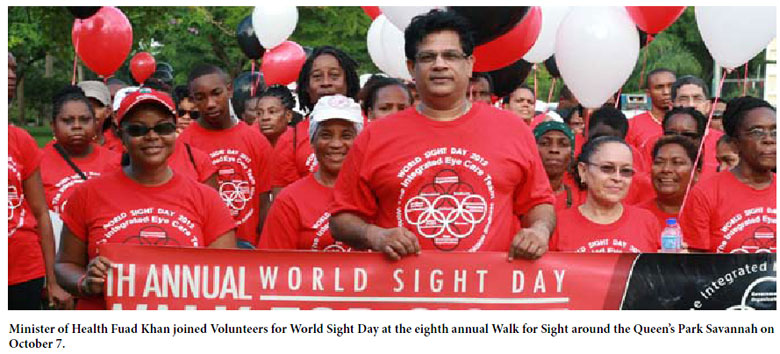 |
 |
 |
|
October 2012 |
Diabetic eye care, childhood vision, eye injuries, corneal transplants and thyroid eye disease were among the subjects discussed when the Faculty of Medical Sciences of The UWI hosted a free symposium at the Eric Williams Medical Sciences Complex earlier this month. Lecturers in ophthalmology and optometry discussed various aspects of eye care, and testimonials were given by members of the public who had been affected by conditions such as glaucoma and cataract. The theme of this third annual UWI World Sight Day symposium was “The Integrated Eye Care Team – Working Together to Eliminate Avoidable Blindness.” It is one aspect of the FMS’ association with World Sight Day observances, which are touched by its undergraduate Medical programme (established 1948), postgraduate Doctor of Medicine (DM) in Ophthalmology programme (established 2004) and undergraduate Optometry programme (established 2009). Members of the Faculty as well as Minister of Health Fuad Khan joined Volunteers for World Sight Day at the eighth annual Walk for Sight around the Queen’s Park Savannah on October 7. World Sight Day aims to reduce the prevalence of avoidable blindness and low vision through patient education and health promotion. Three-quarters of the world’s blindness is avoidable – either treatable or preventable – and 90% of avoidable blindness occurs in the developing world. People in developing countries are ten times more likely to be blind or visually impaired than those in the developed world. The World Health Organization (WHO) estimates that if no action is taken, 100 million people globally will become needlessly blind by the year 2020.
|


